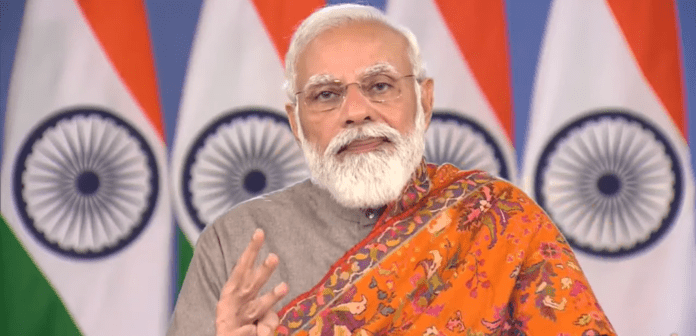Narendra Modi’s landmark trip to Poland and Ukraine aims to strengthen bilateral ties and marks a historic first visit to Ukraine since the 2022 Russian invasion
Indian Prime Minister Narendra Modi has embarked on a significant two-nation tour of Europe, visiting Poland and Ukraine. This trip marks the first visit by an Indian Prime Minister to Poland in 45 years and is set to be the first official visit to Ukraine since Russia’s invasion in February 2022.
Modi’s visit to Poland will involve high-level discussions with Polish leaders, including Prime Minister Donald Tusk and President Andrzej Duda. The visit is timed to coincide with the 70th anniversary of diplomatic relations between India and Poland. During his stay, Modi plans to address the Indian community in Poland, emphasizing the growing importance of this Central European nation as a key economic partner.
Embed from Getty ImagesIn his departure statement, Modi highlighted the strategic significance of Poland in Central Europe and expressed enthusiasm about advancing bilateral relations. “My visit to Poland comes as we mark 70 years of our diplomatic relations. Poland is a key economic partner in Central Europe. Our mutual commitment to democracy and pluralism further reinforces our relationship,” Modi said. He also mentioned his eagerness to meet with Polish leaders and engage with the vibrant Indian diaspora in the country.
On August 23, Modi will travel to Ukraine aboard a luxury train known as ‘Train Force One,’ a mode of transport previously used by global leaders such as U.S. President Joe Biden. This journey will bring him to Kyiv, where he is scheduled to meet with Ukrainian President Volodymyr Zelenskyy. This visit represents a significant moment in India-Ukraine relations, coming amidst ongoing conflict and international tensions.
Modi described Ukraine as a “friend” and expressed hope for a swift return to peace and stability in the region. He emphasized that his visit to Ukraine aims to reinforce bilateral cooperation and discuss the peaceful resolution of the conflict with President Zelenskyy. “As a friend and partner, we hope for an early return of peace and stability in the region. I am confident that the visit will serve as a natural continuation of extensive contacts with the two countries and help create the foundation for stronger and more vibrant relations in the years ahead,” Modi said.
This diplomatic tour signifies a deepening of India’s engagement with Central and Eastern Europe and underscores Modi’s commitment to strengthening international partnerships amidst global challenges.
Analysis:
Political Perspective: Modi’s visit to Poland and Ukraine highlights India’s strategic approach to expanding its influence in Europe. The trip underscores a commitment to enhancing bilateral relations with key European nations, reflecting India’s broader diplomatic strategy to strengthen ties with Central and Eastern Europe. The timing of the visit, coinciding with the 70th anniversary of diplomatic relations with Poland, underscores the importance of historical ties and the desire to build upon them. The visit to Ukraine, especially amidst ongoing conflict, demonstrates India’s balanced approach in addressing geopolitical tensions while fostering diplomatic and economic relations.
Social Perspective: Modi’s engagement with the Indian diaspora in Poland reflects a broader trend of acknowledging and leveraging the contributions of expatriate communities. This interaction not only strengthens ties between the Indian government and its overseas citizens but also highlights the role of the diaspora in enhancing bilateral relations. In Ukraine, the visit represents a gesture of solidarity with a nation grappling with conflict, which could positively impact public perception in both countries.
Racial Perspective: While the current events do not directly address racial issues, the broader context includes India’s role in international diplomacy and how it engages with diverse regions. Modi’s visit to Poland and Ukraine highlights India’s approach to fostering relationships across different racial and ethnic backgrounds, promoting a narrative of mutual respect and cooperation.
Gender Perspective: The visit does not specifically address gender issues; however, the broader implications of such high-level diplomatic engagements can influence gender equality indirectly. By promoting stability and economic growth through international partnerships, such visits may contribute to improved socio-economic conditions, which can have positive effects on gender equality in the long term.
Economic Perspective: The focus of Modi’s visit on strengthening economic ties with Poland and Ukraine highlights India’s interest in expanding trade and investment opportunities in Central and Eastern Europe. For Poland, the visit aims to reinforce economic partnerships and explore new avenues for collaboration. For Ukraine, the visit signifies support during a critical period of conflict, potentially paving the way for future economic cooperation and aid. The emphasis on economic partnerships aligns with India’s broader strategy to enhance its global economic footprint.
